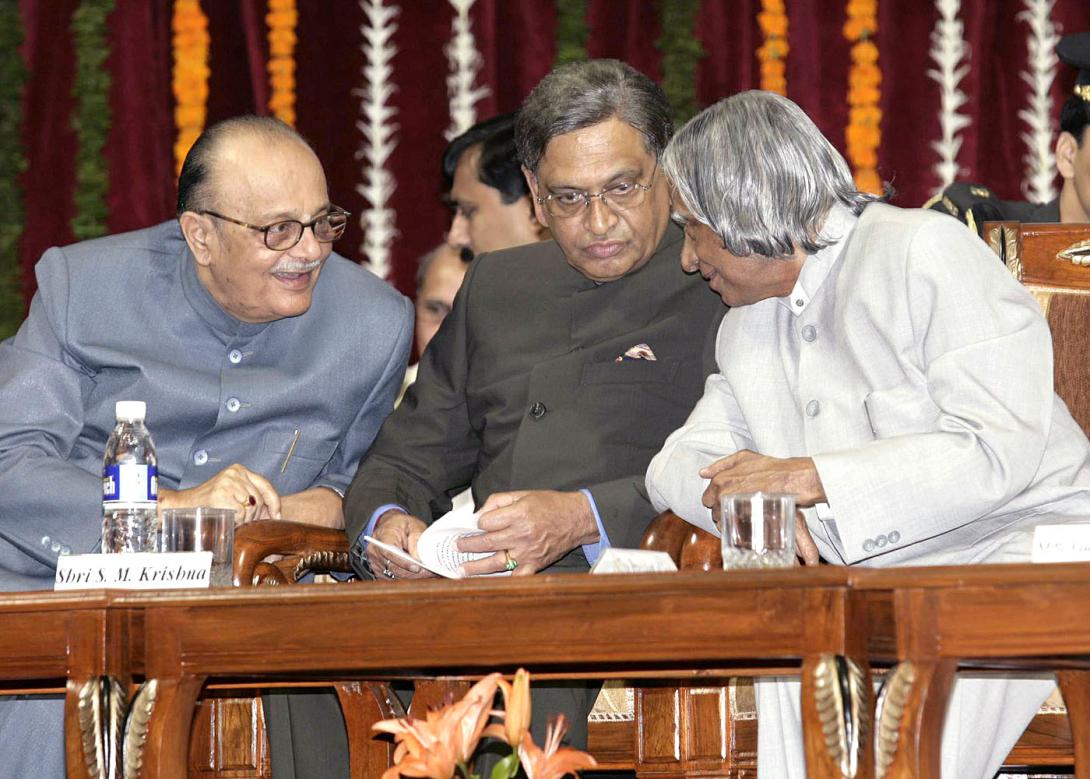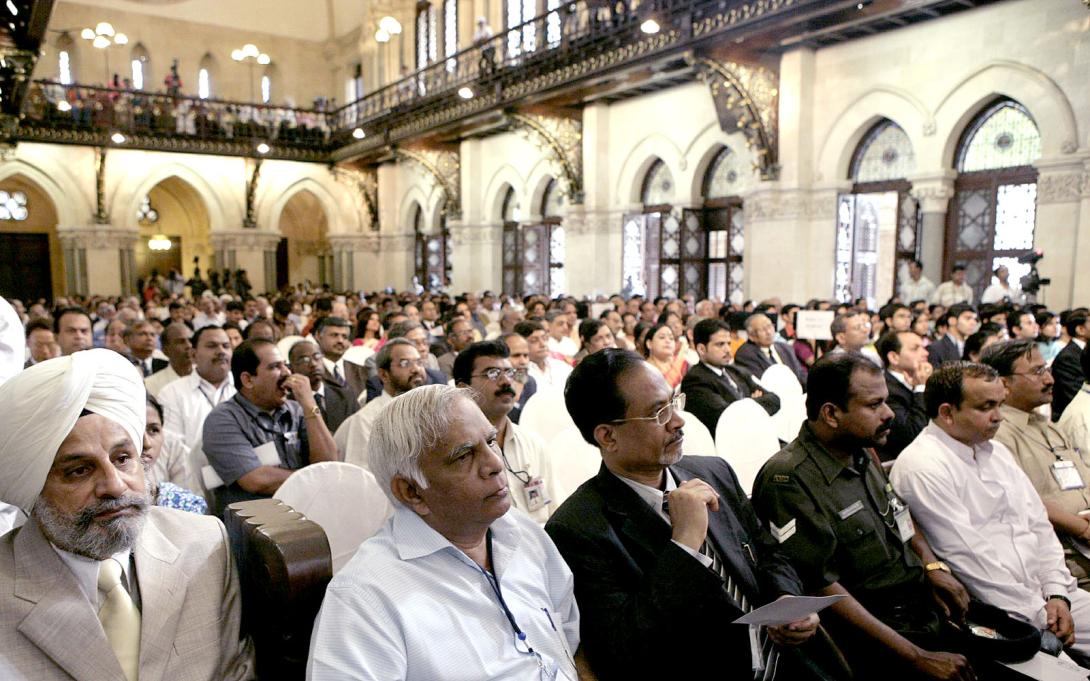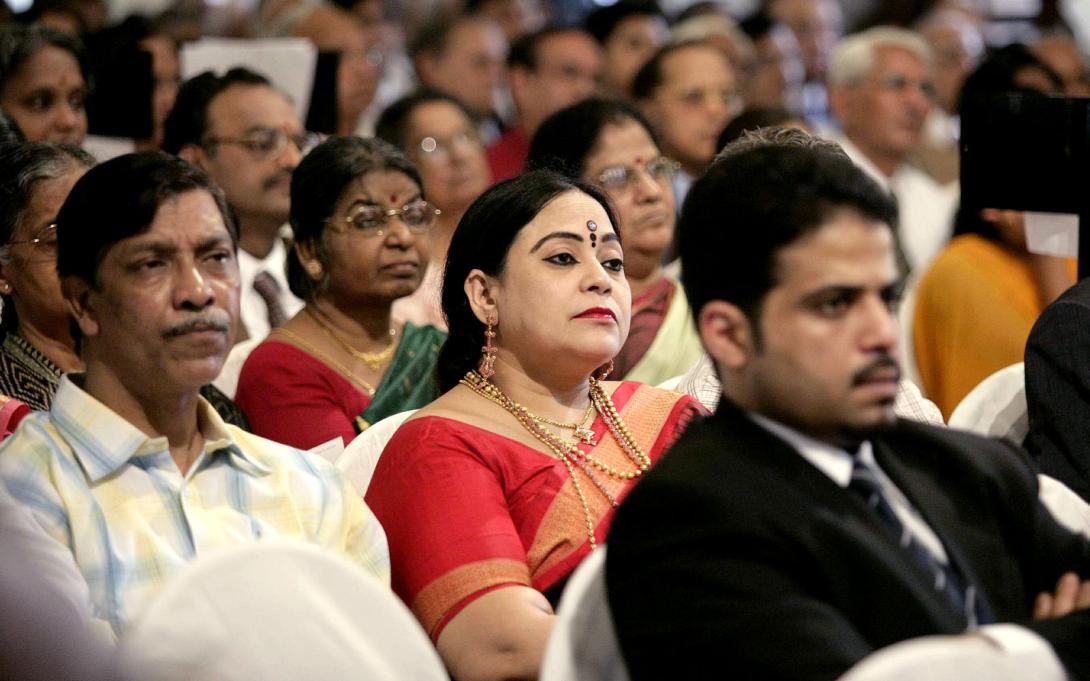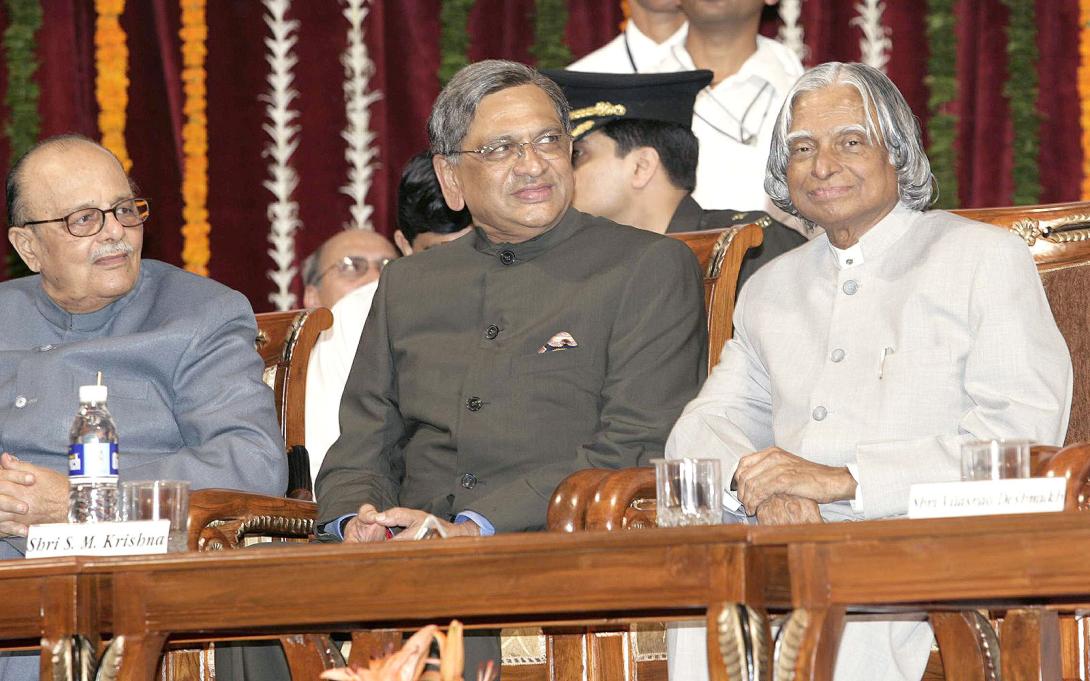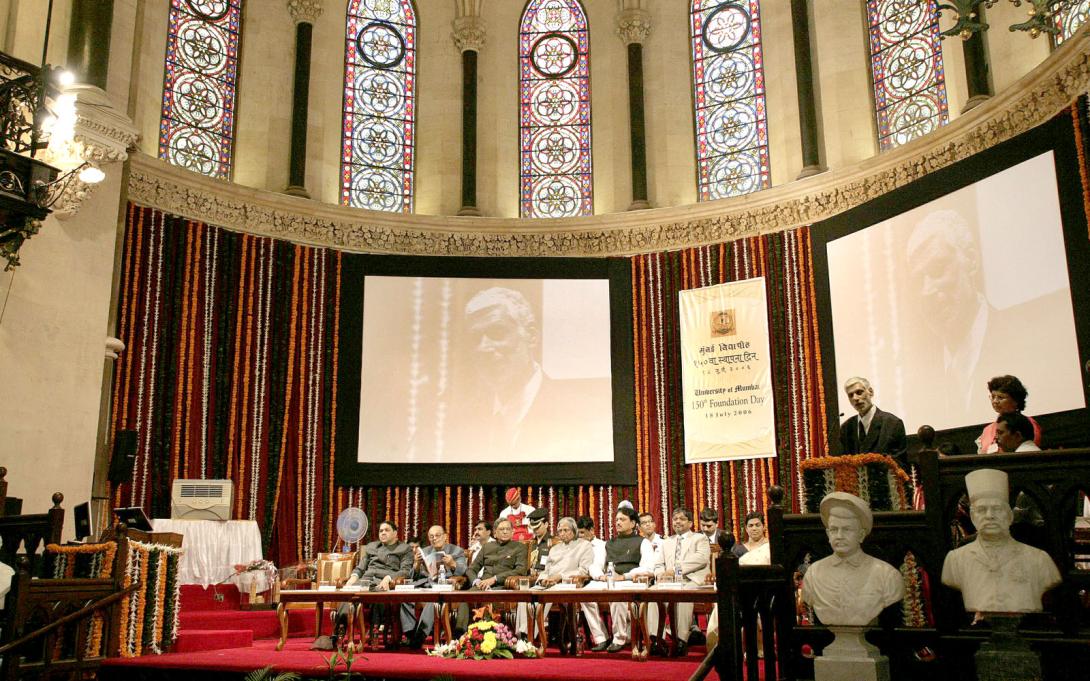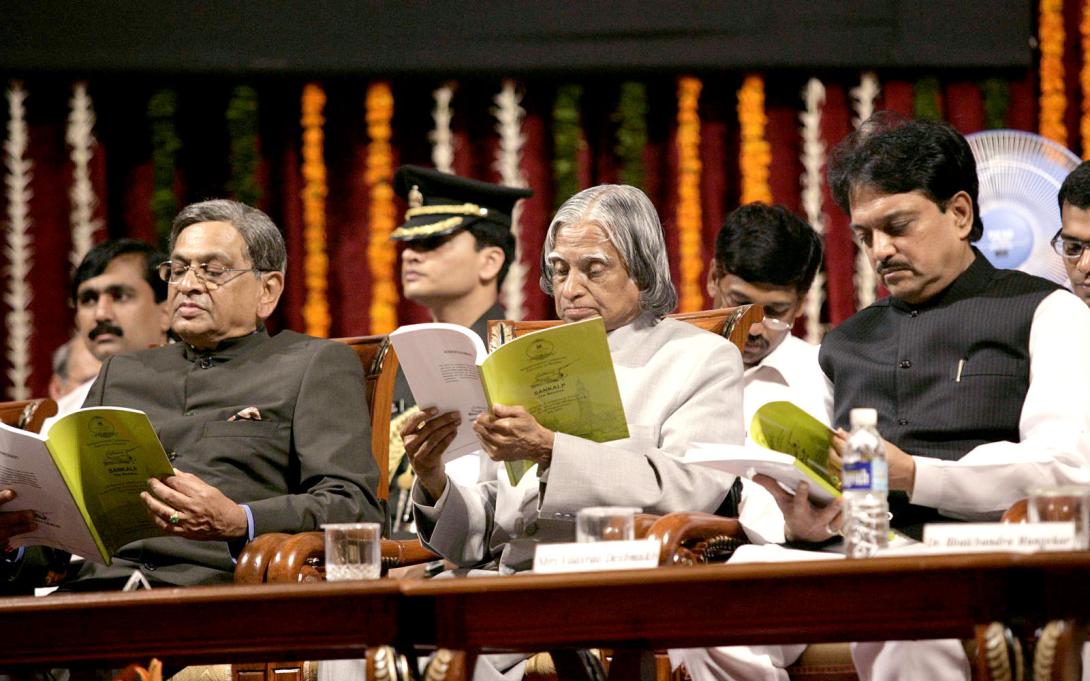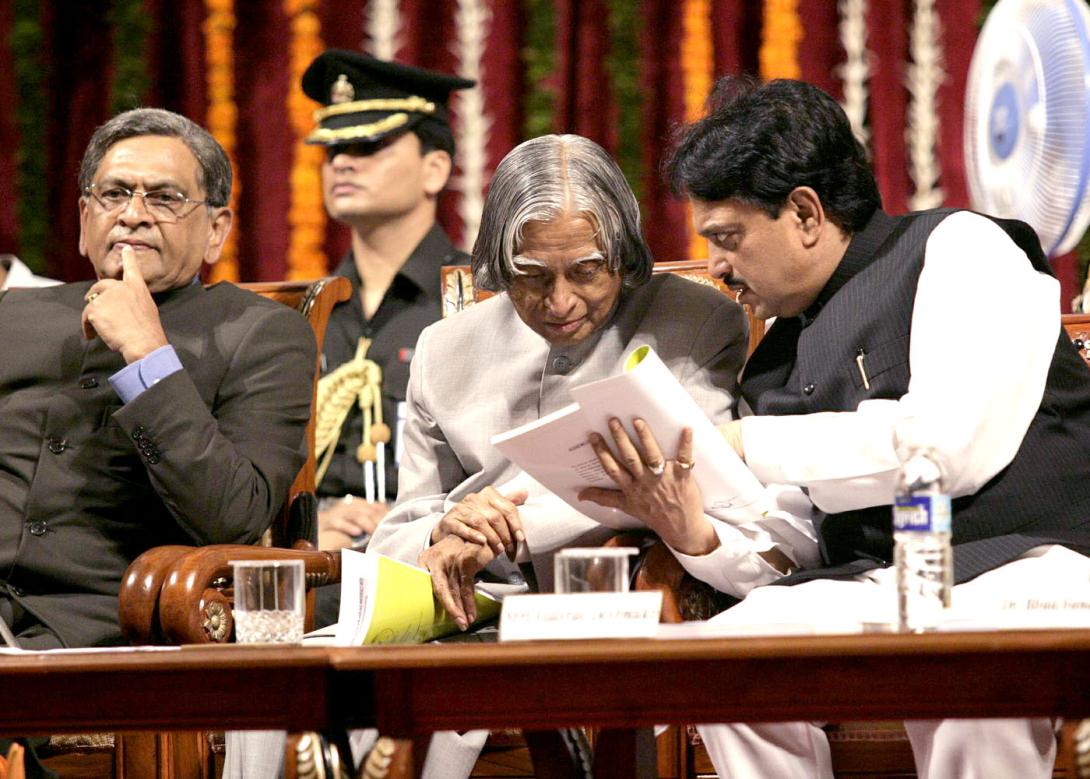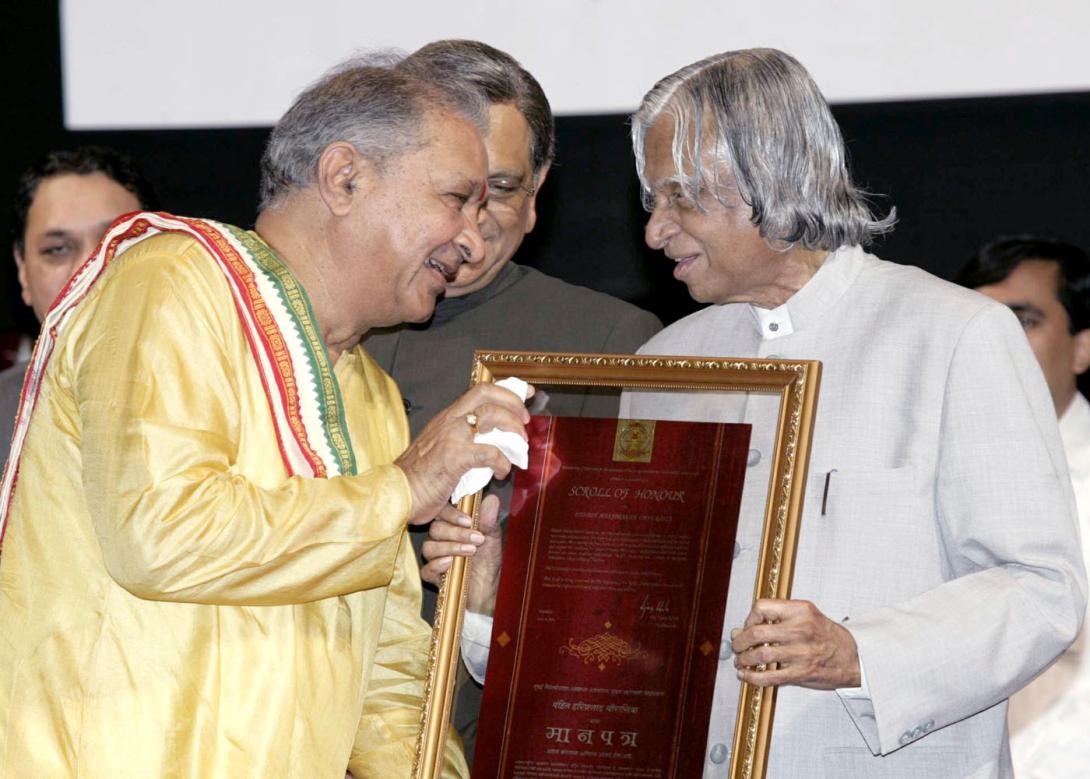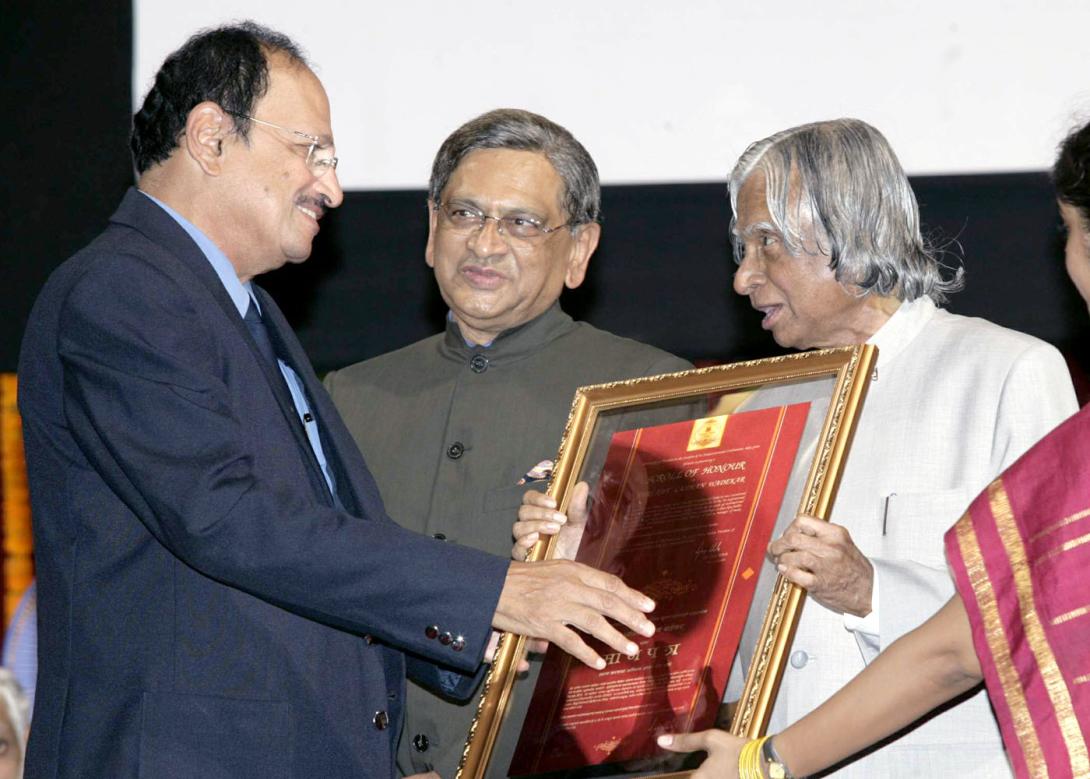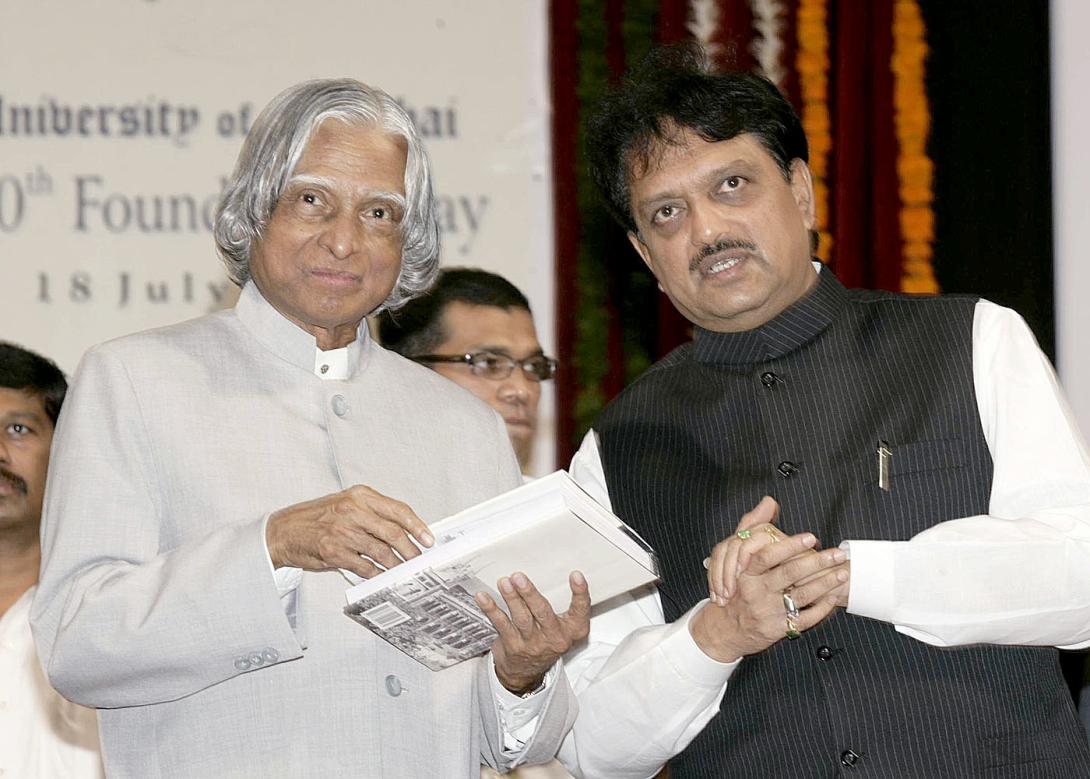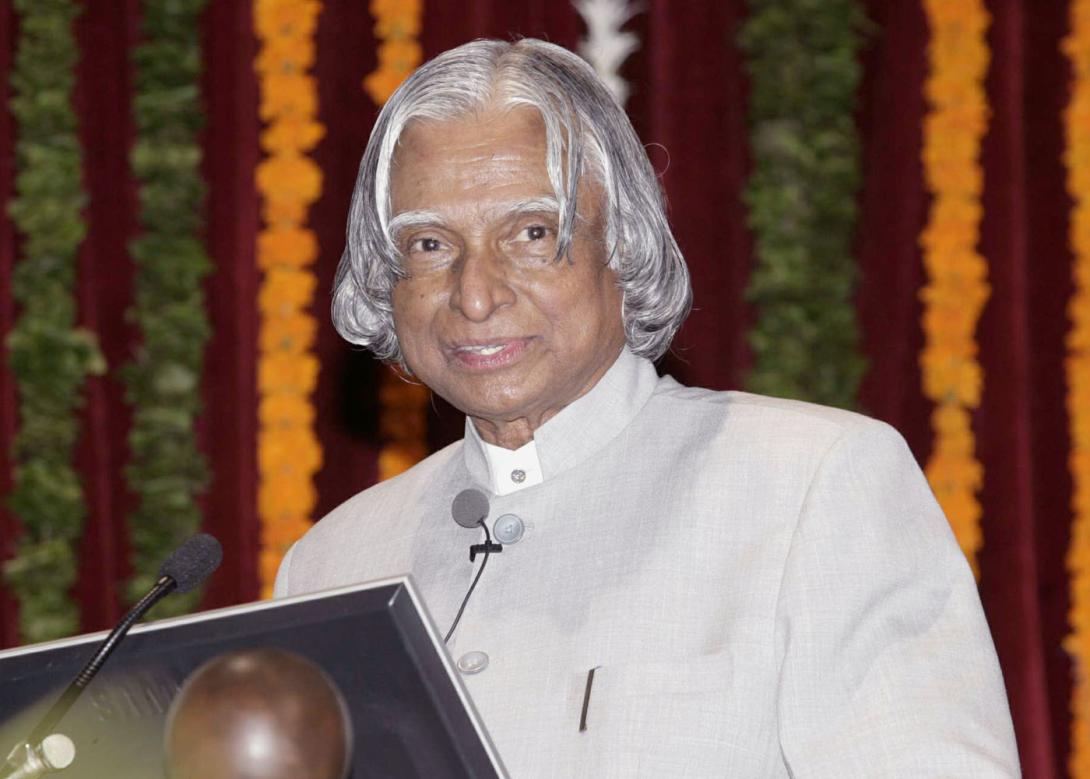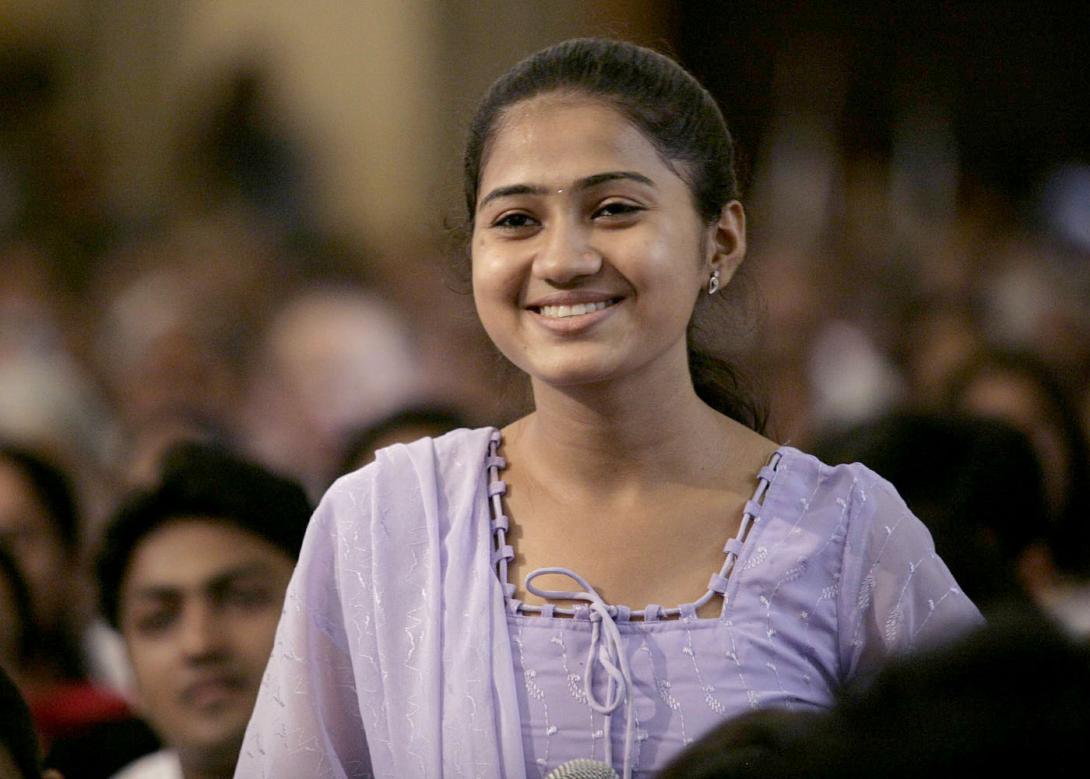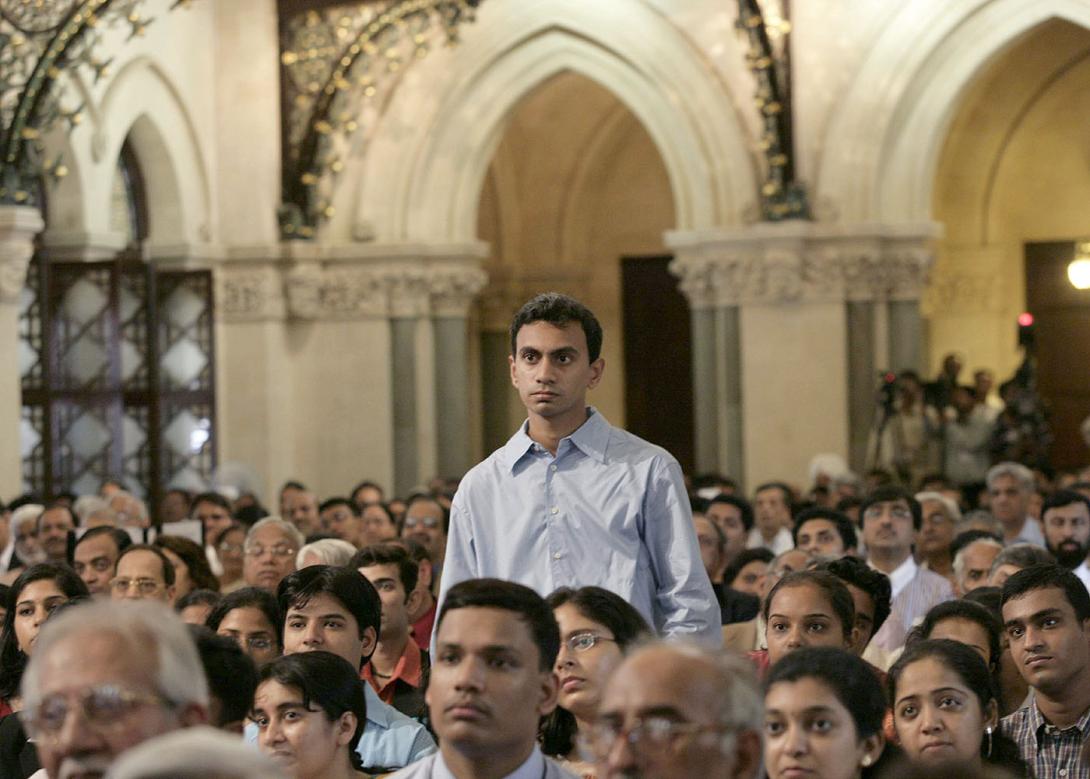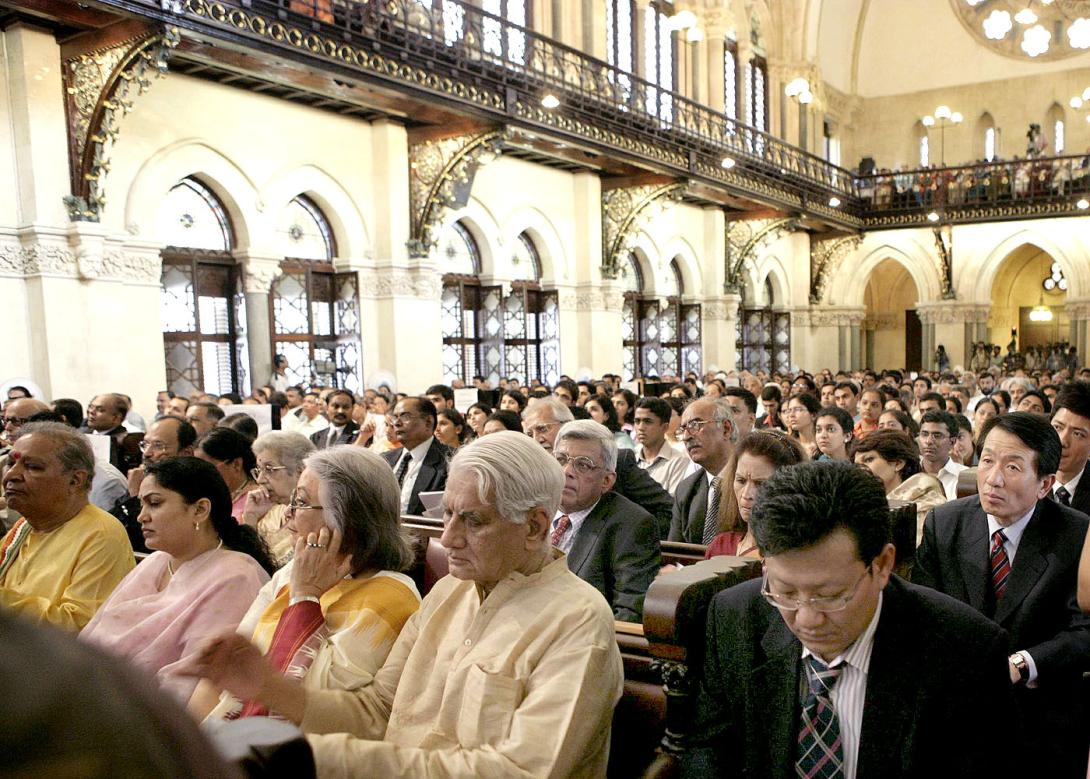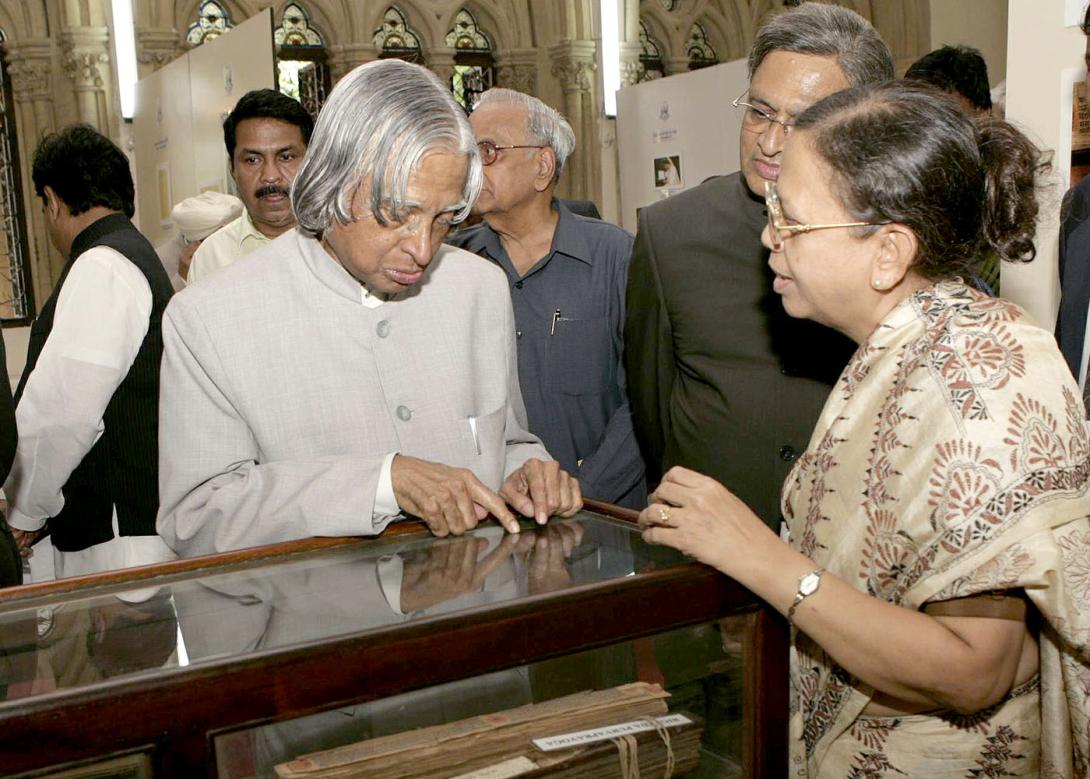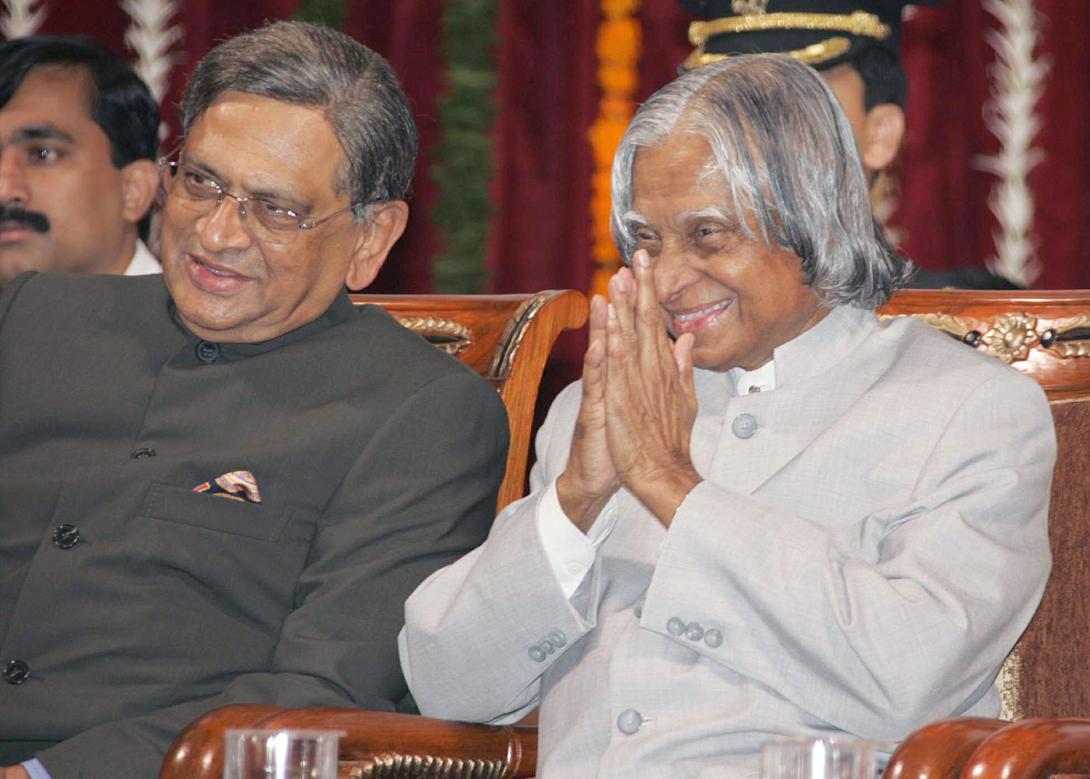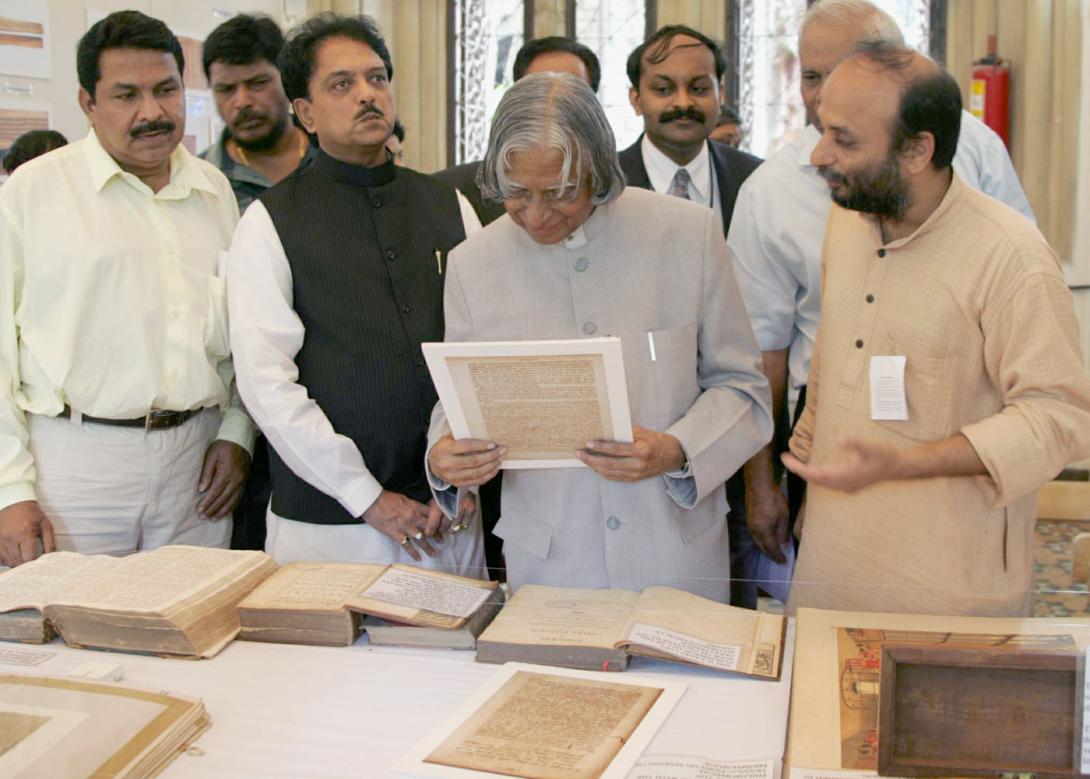Address at the Launching of the Post-centenary Golden Jubilee Celebrations of University of Mumbai, Mumbai
Mumbai : 18-07-2006
Creative Leaders
"Inspired minds transcend limitations"
I am indeed delighted to be in the University of Mumbai to participate in the Post-Centenary Golden Jubilee Celebrations and the students Centric Leadership Tomorrow Summit. I take this opportunity to congratulate all the teachers, students and staff of this University and all those who have contributed during various phases of the university in promoting excellence in educational standards during the last 150 years. The University indeed has created many eminent teachers, professors, scientists, economists and distinguished personalities. Your University is singularly fortunate to have had the association of many distinguished personalities in its 150 years of educational excellence including distinguished leaders in various fields: Mahatma Gandhi, Father of the Nation, P.V. Narasimha Rao, Former Prime Minister of India, Nani Palkhivala, Eminent Jurist, Dr. Anil Kakodkar, Nuclear Scientist and Dr. R.A. Mashelkar, an eminent Polymer Chemist and many more were the alumni of Mumbai University.
India's First Virtual University
I would like to congratulate, University of Mumbai for pioneering Virtual University system by bringing together University of Madras and University of Calcutta. This Virtual University system has led to the commencement of 10 joint degree, post graduate and Ph.D Programmes. I am very happy that this movement is first of its kind in the country. I had inaugurated this programme from Rashtrapati Bhavan, New Delhi through a Virtual Tele-Education delivery system, where 15000 students participated. I took the first class for 90 minutes followed by an interaction with all the three universities. I still remember one of the question asked by a student Prafulla Sawant, Department of Marathi, University of Mumbai, the question was ?How can we make a village self-dependent? What is the role of remote village in the world power?? It was an important question; I explained to her the need of various connectivities - the physical, electronic, knowledge connectivities leading to economic connectivity that is called PURA (Providing Urban Amenities in Rural Areas). I had seen a PURA operational in Maharashtra at Loni with the leadership of Pravara Medical Trust. I am sure, the questions and discussions are the backbone of research, good research leading to good teaching. I am happy to be here again with the Virtual University environment at Mumbai. My greeting to all the participants of this Virtual University Programme, particularly on the occasion of Post centenary Golden Jubilee celebrations of the University of Mumbai.
Leadership from operating core of society
I was thinking what thoughts I can share with the participants of "Student Centric Leadership Tomorrow Summit" organized as a part of 150th anniversary celebrations. I have selected the topic "Creative Leaders". I would like to narrate five examples of leadership which provides an insight into how selfless individuals with expert knowledge and determination to succeed contribute to societal development.
The first one is a story of Shri Shanmugappa who started his career as a porter and today he is an entrepreneur employing over 1,200 people. The second one exemplifies how a lady, socially alienated can become a major social reformer. The third example deals with the contribution made by an industry in promoting societal welfare particularly to the differently abled people of the society, the fourth one deals with an environmental upgradation mission. The fifth example pertains to technology denial management in an important defence programme. Let me highlight the leadership qualities from the operating core of the society.
Success through Hard work and Entrepreneurship
On 20th August 2005, I met Shri G. R. Shanmugappa who is presently Vice-President, All India Motor Transport Congress and President of Karnataka Lorry Owners Association. I would like to share how he faced life and has grown to the present position. In the year 1971, after failing in the 10th class, he moved over to Bangalore where he worked as a Porter in Bangalore Railway Station. In 1972 he joined Sasikala Transport Company and worked there as a labourer for one year. In 1973 he took up a job as labourer in the Brookebond India factory located in Whitefield. During the period 1975 to 1977, he worked in a transport company called Ramani Rangarao of Vijayawada where he was loading and moving coffee trucks to different places in the country.
During this seven year period, with his hard work with devotion in different places he had created a saving of Rs. 4000. With that money he bought an old Van in 1978 and started running the Van with the help of Sri Basavaraj, his brother who was a Driver and he himself became a cleaner. With the savings generated by running the Van he purchased an old Ashok Leyland truck in 1979. From 1980 to 1986 he kept on purchasing one or two trucks per year. All these days he continued his work in Ramani Rangarao Transport Office. In 1986 Shri Shanmugappa purchased one acre of land in Hosur Board and created a shed. He used this shed for blending tea for which he got a contract from Brooke Bond. By 1993 he was blending almost 100 tonnes of tea employing around two hundred and fifty members. In 1996 he started coffee packaging and sold off all the trucks and constructed a 40,000 square feet building in Basavapura village, Hosur Road land which he had purchased in 1986. By 1998 he was blending and packing ten tonnes per day of coffee employing around six hundred labourers. In 1999 he entered into premix coffee business in small quantities of 100 kg or 200 kg per day. Based on that experience he went into production of 10 tonnes per day premix coffee and eight tonnes per day premix tea employing over seven hundred labourers. In 2003 he bought 100 trucks for hiring to certain mines, coffee transportation and sub contracting to Larsen & Toubro, thus he became a fleet owner. In 2004, he converted the trucks as Milk Transporters for the Milk Dairy. In 2005 he visited Australia with his son who is a MBA student for establishing a milk dairy as a joint venture with an Australian firm for handling 9 lakh liters of milk per day. Simultaneously, he has established a factory which produces 100 tonnes of corrugated boxes per month for packaging premix coffee and premix tea. Today, he is employing around 1200 persons for running the trucks and also running premix coffee and tea business. Through this example, we can see how enthusiasm, hard work with devotion and above all the will to succeed made Sanmugappa, a successful entrepreneur, indeed he is a role model for any level of society. On his invitation, I inaugurated the Motor Transportation Congress, of which he had become the Chairman; I was happy and privileged to sit by his side to understand further about his dreams. India needs many Shanmugappa - like leaders.
From Social alienation to Social Reformer
Last year, I addressed the members of CII Leadership Conclave at Bangalore. There I asked two questions to be answered by every one of the participants. The two questions were (a) What I have learnt so far? (b) What I will be remembered for? I asked the members to correspond with me through email. One of the members in the Conclave was Smt. Asha Ramaiah.
Smt Asha Ramaiah who is presently working as National Advocacy Officer for Indian Network for people living with HIV/AIDS and herself a HIV/AIDS patient since 1995, gave touching answers to both these questions.
As an answer to the first question "What I have learnt so far in my life?", she said,
The true learning in my life began when I had to face the reality of my situation. First, my husband?s family turned me away from their home and later even my father told me to leave our house. I became like any other abandoned woman to face alone my destiny as a fallen leaf would drift with the wind. At the first instance I had to preserve my life and then stand up and face up to the challenges of existence. Thanks to the strength of my womanhood, I could absorb the feeling of shock leading to a realization that my loved ones need support and I am responsible to make efforts to bring change in the lives of other people living with HIV/AIDS in India.
Today with constant efforts that I made, and the support that received from my fellow people living with HIV, I received an acceptance in my community that even people with high positions come to me for an opinion, guidance and counseling on various personal issues. My parents are proud that I have become a role model for others to follow. With a convinced family and a good peer support, I got remarried to another person living with HIV in the year 2000. He has given me ample support to work with my fellow people living with HIV for betterment of our lives.
I learnt when we had to decide upon having a child, how difficult it is for one to make decisions in the face of uncertainties; plunging into the unknown that may have the risk of having a HIV positive child. We decided to follow the medical guidelines to reduce the risk. We came victorious waiting for years when it was confirmed that our child has no infection. We learnt that, dreams do come true but only when you own them and accept the responsibility of any possible risk in pursuing them.
Now we have the responsibility for planning the future of my child for the next 20 years. Our quality life time can be utilized for imparting our parental responsibility by ensuring him education, security and future. I also learnt that I have the responsibility to share the message that all parents living with HIV/AIDS should participate in training programmes and plan their children's healthy future.
For the second question "What I will be remembered for?" She said,
I will be remembered by the People living with HIV/AIDS of many parts of the country and my family, relatives and associates for the courage I showed, to stand up and face life and for my efforts in sharing the light I have acquired in the midst of my struggle.
Friends, the message we get from the above experience of Smt Asha is that as human beings we may get into a problem. But we should not get defeated. We should find out ways of converting this very problem to our advantage and succeed. The courage we see how the lady defeated the disease and most importantly she withstood the onslaught of alienation from her parents, husband and the society. This I call as indomitable spirit of a HIV affected person. Many Asha Ramiah are needed to make the people suffering from HIV AIDS, leprosy, polio, cancer and TB feel comfortable and lead a normal productive life in our society.
Enlightened leadership in labour intensive industry
Recently, I participated in the conferment of TERI Corporate Awards 2004-2005. There I presented the award to a food manufacturing industry called Sakthi Masala (P) Ltd among many awards. This Unit produces curry powders, pappad, pickles and other food products. Over the last ten years the company has been actively recruiting disabled people for their establishment and today one third of the employees in the company are differently abled. The company also runs an exclusive project Sakthi Rehabilitation Centre, a home which provides specialized training and physiotherapy especially to children to make them feel confident and allow them to discover their unidentified potentials. Children with cerebral palsy, multiple disabilities and mental retardation are treated free of cost. All the differently abled employees are also given periodic therapy and counseling.
The company uses non-conventional energy resources thereby contributing to the energy independence of the nation. The company gives employment to over 200 rural people especially the destitute, widows and women. The company also ensures that it does not cause air, water and thermal pollution. It has the largest solar drying plant in Asia for drying spices and it has two wind mills which generate 45 lakh units of electricity every year. In addition, the company also runs a free hospital, offers education assistance to the children of its employees, promotes tree plantation and promotes rain water harvesting. What we learn from this Sakthi Masala company is the leadership quality of an enlightened leader, who cares for his people first and foremost and then for his business and profit. When I was talking to him, I felt the great leadership quality radiating from him and he was giving a valuable message to our upcoming industrial leaders of leadership with human values.
Leadership in Environment upgradation
The status of environmental cleanliness is one of the indicators of development of a nation. As a nation, we have to keep our environment clean and tidy including all our places of worship and rivers. I am delighted to learn the Kali Bein rivulet, the place where Gurunanak Devji is said to have received enlightenment. Over the years this rivulet has turned into weed choked drain. Recently river has become clean due to the efforts of Baba Balbir Singh Seechewal in partnership with the Punjab State Government. From the discussions, I understand that he organized people?s participation in stopping the massive flow of sewage into the Bein and cleaned 160 km long polluted and choked rivulet within the last four and a half years by deploying on an average 3000 volunteer pilgrims per day. Today one can feel the flow of fresh water in this rivulet released from the Tarkina Barrage by the government about a year ago. The revival of the rivulet has recharged the water table as the hand pumps that had become dry for the past 4 decades are now pumping out water.
While I was thinking how we should solve the problem of improving the environment of rivers and religious places, I find one of our enlightened citizens has taken the initiative and leadership and demonstrated the power of ignited individuals to solve societal problem. Let this model spread in all the places of divine worship and inspire the pilgrims to participate in the task of clean environment in water and air.
Leadership in Management of Technology denial
In the year 1992, LCA team decided to go for Digital-Fly-by-Wire Control System (FCS) for the Combat Aircraft as it is an unstable aircraft. At that time, the country did not have the experience in developing FCS. The only two countries who had the experience were France and US. The French company (Dassault System) had expertise in Hybrid systems whereas our need was an all Digital-Fly-by-Wire. Hence, it was thought appropriate to have a US partner who has the capability in design, development and integration of FCS on fighter aircraft. There were three candidates, General Electric Control that later became LMCS (now called BAe systems), Lear Astronics and Bendix. Finally, we chose LMCS for the contract at a costs of $ 40 million since they had the experience in designing FCS for F-16 Aircraft. Joint Team for design and development of the FCS was formed with ADE (DRDO Labs) and LMCS. The work share between Indian team and LMCS team was identified. Evolution of the SRS was the joint effort. The prototype flight control computer was to be done by ADE. Total system integration was the joint responsibility. Flight certification was to be provided by LMCS.
The contract progressed till 1998. Then, as you all are aware, India carried out its nuclear test on 11th May 1998. As soon as this event occurred the American Government imposed technological and economic sanction. Due to the sanction, LMCS broke the contract and retained all the Indian equipment, software and the technical information which were in their premises.
This was definitely a shock for the Indian team. Immediately, I called for a meeting of Directors of ADA, NAL, ADE, CAIR, HAL, National Flight Test Centre, Prof I.G. Sharma, a renowned control system specialist, Prof Goshal, a noted digital control system expert and guidance and control specialists from DRDL and ISRO. The FCS team explained to these members the situation arising out of the unilateral termination of contract by LMCS. We had a full day discussion on the methodology, which now needs to be followed, by which we can successfully complete the development of digital fly wire system and fly the LCA. The team after prolonged deliberations gave a structured method by which the development can be completed and the system can be certified for flight trials. They also mentioned that they will support the programme in whatever capacity they have to work with the ADE and ADA teams.
Based on the recommendations of the specialists we immediately strengthened the ADE software team with additional ten experienced software engineers from ADA. ADA was given the responsibility of verification and validation of software. Integrated flight control system review committee was constituted with Director (ADE) as Chairman and PGD (ADA) as Co-chair to support development and resolve all the conflicts arising between Control Law Team, Iron Bird, Software, Hardware and simulation. This team met once a week and brought out all the issues arising in different work centres and solutions were found. In addition, an Iron Bird review team was formed with Project Director Flight Control System as Chairman with members from HAL, ADA, ADE, certification agency (CEMILAC) and Test Pilots from National Flight Test Centre as Members. This team also met every week and resolved all the problems arising in the development and Test on Iron Bird. We also introduced participation of certification agency (CEMILAC) and inspection agency (CRI) in all these reviews. The aim was to see that any problem in any system is brought into focus at the earliest so that the solution can be found. In addition, we made it a point to have a special agenda in the monthly technical committee meeting on the development of integrated flight control system wherein Director (ADE), Director (NAL), Director (National Flight Test Centre), General Manager (HAL) presented the progress and problems. The confidence building took place by intensifying the tests. For example informal Iron Bird test was carried out over thousand hours and the formal Iron Bird test was conducted over hundred and fifty hours. Similarly, Pilot flew the simulator for more than two thousand hours. Thus, what we missed from the foreign partner, we compensated by enhancing the critical design review and increasing the test time to ensure safe man rated design of the integrated flight control system.
The entire team took the denial as a national challenge. They said if it were going to take three years we would do it in two years. If it is going to take twenty million dollars we will do it in ten million dollars. Our working hours was not eight hours. We will work twenty-four hours a day and complete the task. That is the time I realized the power of Indian Scientific Community, and the power of our country to face the challenge. I realized that no country could dominate us by imposing technological sanction or economic sanction. Power of scientific team will defeat the designs of any nation. Today I can proudly say that our scientists have designed, developed, tested, evaluated, integrated the flight control system in the LCA, which has logged more than 500 trouble free flight sorties in four different aircrafts. The challenge of the development is that the aircraft of this class is being designed for the first time; we introduced the state-of-the-art digital fly by wire technology in the very first prototype, of an aerodynamically unstable aircraft. We on our own developed the final hardware and software required for testing and evaluation of the control system in the aircraft, after the foreign partner leaves the scene and our own certification team which had no experience in certifying fly by wire aircraft, gains confidence and certifies the aircraft as flight worthy. Above all, the pilots who have never flown a prototype, which is unstable with a fly by wire system confidently, flew the aircrafts based on their flying experience in the simulator and the Iron Bird. Honest self-assessment, identification of area of uncertainty and all out effort to solve the problem were an important aspect of this programme. This is an example of Integrating leadership, that combined the strength of industry, R&D Labs, Academic, Air Force (the ultimate user) leading the country to achieve, what was then perceived as an impossible task. This is a demonstration of the Indian will that "We can make the impossible possible."
Conclusion
One of the very important ingredients for success of the vision of transforming India into a developed nation by 2020 is the evolution of creative leaders. I am giving a connectivity between developed India, economic prosperity, technology, production, productivity, employee role and management quality, all of which linked to the creative leader. Who is that creative leader? What are the qualities of a creative leader? The creative leadership is exercising the task to change the traditional role from commander to coach, manager to mentor, from director to delegator and from one who demands respect to one who facilitates self-respect. The higher the proportion of creative leaders, leaders with human values, the higher the potential of success of realization of "developed India by 2020."
My greetings to all of you during post-centenary Golden Jubilee Celebrations of the Mumbai University and my best wishes to members participating in the Leadership Tomorrow Summit for promoting leaders with courage and indomitable spirit to succeed in all our national missions.
May God bless you.
Questions & Answers
1. How could the youth of India involve and use both politics as well as education(science) like you, for the overall development of the country?
- Kunjal Parekh, Graduate Royal College of Arts, Science and Commerce
Ans: Youth of India must concentrate on education and excel in it. Students life is not the time for getting into the politics. After educating yourself fully and acquiring knowledge you can choose politics as your career. When you are at the age of ten you must have a dream of what you want to be. If at that stage you decide for a political career you must equip yourself with subjects like political economics. While in politics you must concentrate on development politics.
2. How do we groom our youth today to assume leadership tomorrow?"
- Kinjal Damani, Bachelor of Arts (3rd year), Mithibai College of Arts
Ans: Value based education is the key for grooming the youth of today. They have to be taught to become good human beings. The education institutions must build the capacities of research and enquiry, innovation, use of high technology, entrepreneurial leadership and moral leadership among the youth. Also, they must become lifelong learners.
3. In the world of today when youth has become the prime focus all over the globe, then why is this youth been consistently denied positions of power and responsibility at the highest levels of planning and implementation?
- Gaurav Gadgil, Graduate, Ruia College of Arts, Science
Ans: It is not true that power and responsibility are denied to young people. If you see our Parliament there are number of young MPs. Continuously the average age of MPs coming down. Similarly, there are number of young ministers. Same is true in Industry and Commerce. Many people from younger generation are running their establishment successfully. The process of change is continuously taking place. If you see the IT industry the average age is 24 or 25 and there are many young CEOs running the establishments very well. For planning and implementation at higher levels we need the dynamism of the youth and the experience and maturity of the old. Both have to work together in accomplishing great missions.
4. How much do you think, the Indian youth are sensitive to the happenings around & keeping that in mind what do you think is the more effective way of bringing over an IDEAL REVOLUTION by the youth & for the youth?
- Ruchi Jain, Graduate, Bhavan?s College (Bharatiya Vidya Bhavan)
Ans: A 10th class student Ms. M. Bhavani studying in Adichunchanagiri Composite High School, Sharavathy Nagar, Shimoga asked me the following question in 2005.
"Dear Sir, What is the role of students to stop corruption which is deeply rooted in our county just like cancer?"
Agony of the young mind is reflected in this question. For me it was an important question, since it come from a young mind. I was thinking what type of solutions we could give. My thought process was the following:
I said there are one billion people in the country and nearly 200 million homes. In general there are good citizens everywhere. However, if we find that people in few million houses are not transparent and not amenable to the laws of the country, what can we do? These houses apart from parents have one daughter or one Son or both. If the parents in these houses are deviating from the transparent path the children can use the tool of love and affection and correct the parents to come back to the right path. I asked all the children assembled in that gathering, in case parents of few children get deviated from transparency, will you children boldly tell your parents, father or mother, you are not doing the right thing, that is what we are taught by you and in the school. Most of the children spontaneously responded, ?We will do it?. The confidence comes from them that they have love as a tool. Similarly I have also asked the parents in some other meeting, initially there was a silence, later, many of them hesitantly agreed that they would abide by the children?s suggestion since it is driven by love. They took an oath from me. The oath was ?I will lead an honest life free from all corruption and will set an example for others to adopt a transparent way of life?. Finally I told the students that they should start a movement starting from their home. Youth of today have to fight to eradicate corruption by making each home righteous.
5. How can Indian leaders ensure economic and social justice in the global arena?
- Minakshy Iyer, Master of Arts (Part II), Department of Economics, University of Mumbai
Ans: India has 220 million people living below poverty line. We have to lift them up. Hence, economic development has to go hand in hand with social justice. For this, the government, industry and business houses have all got to be sensitive to their social responsibility and make social responsibility as a part of their mandate. I have already given an example how Sakthi masala fulfils its social responsibility by training and employing differently challenged people in productive work.
6. If withdrawal of state from the education field continued & private education encouraged then what will be the future of our education system? Will it not become the privilege of rich?
- Shakil Khan, Master of Arts (Part II), Department of Civics & Politics, University of Mumbai
Ans: India has 600 thousand villages and 200 thousand panchayats. In the rural areas, private institutions do not go. There Government has to provide quality educational institutions. In the urban areas, there must be a mix of both government and private educational institutions. This will provide a healthy competition and enable us to have a bench mark for quality education. However, privatization need not mean providing education only for the rich. The private institution itself can run the college with certain amount of seat kept specifically for poor children. Also, I have been suggesting provision of hassle free loans to the students so that meritorious students need not discontinue education for want of funds.
7. Various countries over the world have now taken a liberal view of conjugal obligations and have included the definition of Marital Rape under their penal statutes. Do you not believe that taking into account the number of suppressed cases of Marital rape in India, it should be incumbent to amend the definition of rape to include this barbaric act also under the Indian Penal Code?
- Siddhima Kotak, LLB, Government Law College
Ans: We cannot follow what the Western countries have done. Social bond of Indian life is much deeper than the west. Our education level particularly in rural areas has to go up. Hence a nationwide debate is needed to find the sentiments of all the people in the country about the need for such enactments.
8. We are proud to have two highly qualified leaders as our President and the Prime Minister and India is clearly benefiting from their knowledge, bright ideas and efficiency. So when can we finally look forward to having a 'qualified' team of politicians to run the economy of this country with a population of over one billion? Why is the eligibility criteria for a Member of Parliament so low when even the post of a clerk/receptionist demands a higher standard? Are any steps being taken in this regard?
- Anu Maheshwari, Master of Arts, Department of English University of Mumbai
Ans: In the present Lok Sabha, number of MPs who are graduates, post-graduates and Ph.D. has gone up considerably and this process is continuing. The voter has a choice. He can definitely vote to the best qualified person among the candidates.
9. Should the foreign education bill be enabling and not restrictive so that foreign universities can set up their institutions in India and also do you think that these foreign institutions would affect our education system and our institutions in future?
Shirish Nair, Management Graduate, Pillai?s Institute of Management Studies & Research
Ans: Education has to be bilateral. In the real sense of globalization we should have foreign universities setting up institutions in India and Indian institutions setting up institutions abroad. I have seen Indian institutions setting up engineering colleges in Dubai. This type of exchange will provide better opportunity for our students and give a higher benchmark for Indian institutions. This will promote healthy competition in education and enable us to provide world class skills and knowledge.
10. Why can't we retain our talent at home? Why our intellectual capital is opting for jobs outside our country?
- Sugosh Prabhu, Bachelor of Science (2nd year), V G Vaze College, Mulund
Ans: Over 3 lakh engineers and professional graduate every year from our country. If a small percentage seek employment outside the country, it is useful for us to get the benefit from their experience since their umbilical connectivity between their homes and the educational institutions provides an opportunity for exchange of thoughts.
11. I have just finished B.Ed (Bachelor of Education) Course. In the light of the recent bomb blasts, when the students ask the teachers some sort of an explanation for such events, how as teachers are we supposed to handle the situation? What explanation should we give them?
- Anuradha Gokhale, Bachelor of Education, Hansraj ivandas College of Education
Ans: India is a vast country. Most of the terrorism is due to cross border terrorism. Politically we are trying to solve the problem. Other countries in the world are also putting tremendous pressure. In addition to all these, we have to plan for Integrated intelligence, increased surveillance, fast law enforcement and peoples participation for anti-terrorists action. ?When bad men combine, the good must associate.?
12. Why choose politics over a successful career in any other profession? In today's day and age of rampant corruption and malpractice how can the youth make any difference in the Government and bring in modern reforms and thought processes without getting caught in the net and how do we prevent others from pulling us down while trying to bring about this change?
- Ayesha Limathwalla, Graduate, H R College of Commerce & Economics
Ans: You should find a good role model. There are many who have brought great reforms and made a difference. You can also contribute in a significant way as long as you work for a noble cause.
13. What is the best way or methodology that should be adopted by the youth of this country to make their voices and opinions heard? The anti-reservation protest created a lukewarm response from the government. what is the best way to ensure that the opinion of the gen-next is heard loud and clear?
- Radha Mukherjee, Bachelor of Science (3rd Year) Kishinchand Chellaram College
Ans: I would like to suggest that reservation must become a non-issue. This can happen by increase the number of seats available for our youth. For example, today 30,000 seats in engineering colleges are vacant in Tamil Nadu. Due to this there is competition among colleges for providing quality education at lower cost. All of us should together work for enhancing the capacity in our educational institutions.
14. Does my spectrum as a management graduate should be restricted to the organization I will work or it should be extended to the society I live, if yes then how?
- Ruchika Gupta, Graduate, Dalmia Institute of Management Studies & Research
Ans: Firstly, you must do your job well in the organization you work. Apply all the knowledge and skills you have learnt for performing well in your allotted tasks. After fulfilling this commitment you can definitely help other members of the society in whatever way you can. Possibly, you may help some people who are illiterate to get educated or you may help a poor boy or girl seek higher education. There are many possibilities through which you can help the society.
15. There is imbalanced growth of population migrating towards metro city like Mumbai. To avoid future environmental & social problems are there any long term plans or solutions?
- Sayali Dongre, Post-Graduate Diploma, Garware Institute of Career Education & Development
Ans: I have been suggested the IT industries to start enterprises in tier-2 cities instead of concentrating on metropolitan cities of the country. Also, the Government is in the process of establishing number of PURAs (Providing Urban Amenities in Rural Areas) with larger number of rural enterprises. This dispersal will reduce the environmental and social problems pertaining to large cities.
16. Can Science & Spirituality (not religion) work together, if yes then how can they be used to develop our country?
- Basesh Gala, Engineering Graduate, VJTI, Veermata Jijabai Technological Institute
Ans: Yes. Science and spirituality can definitely work together. Practical example ? church story.
17. How will the next generation cope up with the fast growing knowledge economy?
- Gaurav Bedekar, Master of Arts, Department of Economics University of Mumbai
Ans: For the knowledge economy, we need autonomous life long learners. We have to build the capacity of research and enquiry, innovation, use of high technology, entrepreneurial and moral leadership among all the youth. This will enable the youth to face the challenges of knowledge economy.
18. Why do we have an education system that emphasizes only on certain fields like medicine, IT to generate economic growth?
- Divya David, Bachelor of Arts, St. Xaviers College
Ans: Emphasis is on many things. For example, we are now talking about convergence of technologies such as information technology, bio-technology and nano-technology. Like that society needs many areas in science, technology, arts, humanities, law, commerce, literature and management for our economic growth. Education system is geared up to meet all these challenges.
19. In the wake of globalization, what role do you envisage for Teacher-education in making our education globally challenging & locally feasible?
- Serilda Gonsalves, Bachelor of Education, St. Xavier?s Institute of Education
Ans: Education must become competitive. Teachers must be taught about the law of development and the global competitiveness. With that background the teachers must be able to impart the knowledge needed by youth in the global competitive environment.
20. What according to you are characteristics/qualities should the Youth Leaders have and how can they achieve it ?
- Mihir Shah, LLB, Jitendra Chauhan College of Law
Ans: Indomitable spirit, honesty and to be a good human being are the essential characteristics of the youth leaders. They should continuously acquire knowledge and work with good role models to achieve these characteristics.
21. What you think about youths career in political world?
- Priyanka Jain, Graduate, Shri Rajasthani Seva Sangh College of Arts & Commerce
Ans: Politics is also a profession like any other profession. While I have been interacting with children on many occasion a few children always have told that they would like to take politics as their profession. They have a mission of eradicating corruption or provide service to the community.
22. What are the parameters on which professors and teachers performances can be judged? Why isn't there any accountability in teaching sector in India?
- Prerna Mahadik, Graduate, Elphinstone College of Arts & Science
Ans: Teachers must carry out research. Research leads to enhance understanding and better teaching. Good teaching results in good results. This is a closed cycle. Teachers must embark on quality research for becoming good teachers.

